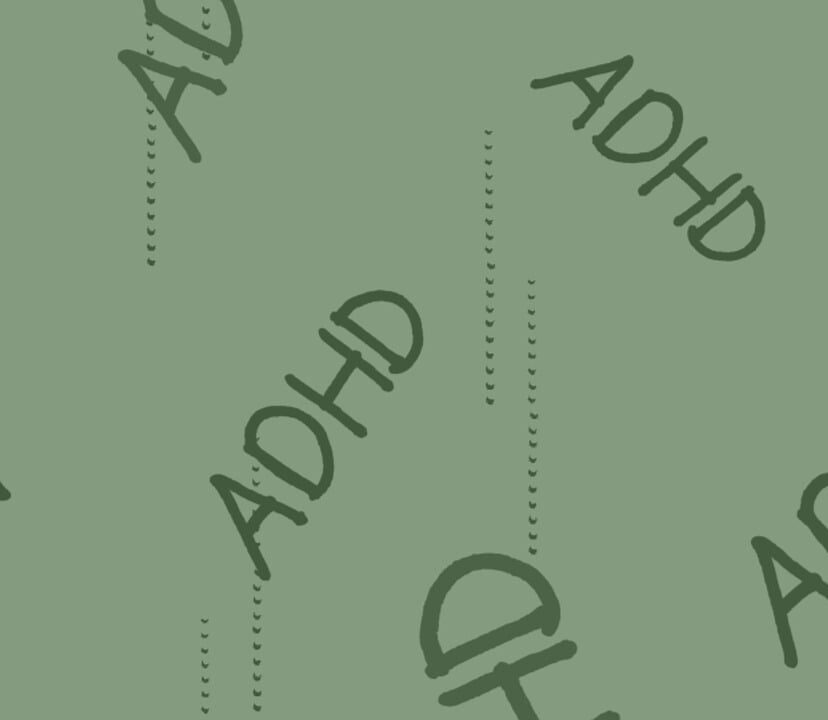Is your child the bully or the victim? Yes, they can be either one or both. This presents a real quandary for the parents of a child with ADHD. On one hand, your child is being bullied. On the other, they ARE the bully. Unfortunately, I understand this all too well. Because this describes me at certain points in my life. You can’t begin to understand the confusion this can cause within your child’s mind. This can also be the source of incredible bewilderment for you as their parent. You are not quite sure which direction to go.
ADHD
What is ADHD?
It is a chronic neurodevelopmental disorder affecting 11 percent of school-age children. It is characterized by developmentally inappropriate levels of inattention, impulsivity, and hyperactivity. ADD/ADHD is for all practical intents and purposes is one in the same. ADD is an older way of referring to ADHD.
ADHD is considered to be a disability by the Americans with Disabilities Act. It is also very common for people with ADHD to also suffer from anxiety. It can also be co-morbid with Tourettes Syndrome, which confuses everybody around the ADHD sufferer.


Determining the Presence of ADHD
There is no single test for diagnosing ADHD. It requires a comprehensive evaluation performed by a specific set of professionals such as psychologists, psychiatrists, neurologists, and nurse practitioners. They need to be able to rule out any other conditions and determine the presence of any other possible factors. Regardless of who makes the diagnosis, the use of the DSM-5 diagnostic criteria for ADHD is necessary.
No child should have to go through the school day feeling scared, embarrassed, or ashamed. But this does happen to thousands of kids every day in this country due to bullying. Unfortunately, there are very few teachers, admin, or staff that are knowledgeable enough to know what to look for. Less than 25% of teachers recognize bullying when they see it. So, it is up to you to help your child. Here are some of the things that you need to be aware of. There are three distinct types of ADHD.
Types of ADHD
a. Having difficulty staying on track and following through. Starts a project and then quickly losses focus or gets sidetracked.
b. Difficulty paying attention. Has trouble following instructions or keeping schoolwork
organized.
c. Appears not to listen when spoken to. His/her mind seems to be elsewhere.
d. Often forgetful or easily distractable. Constantly forget where he lays things down.
e. Is easily distracted
f. Often forgets doing routine chores (like paying bills, returning phone calls).
g. Often loses items needed to complete tasks or activities.
a. Fidgets or has difficulty remaining seated: Do teachers complain that your child leaves his/her seat or moves around too much in class? Does it seem like your child is unable to be still for an extended period of time?
b. Always “on the go”: Maybe your child cannot seem to play quietly or participate in social activities.
c. Talks excessively: Blurts out answers to questions or has difficulty taking turns: This can be as obvious as completing other people’s sentences or not being able to wait in line.
d. Constantly leaving their seat, jumping or climbing on furniture and other inappropriate places e. Not having patience
f. Blurting out comments at inappropriate times
g. Interrupting conversations or speaking out of turn
h. Trouble waiting for a turn or standing inline
A child can actually have both the Inattentive and hyperactive-Inattentive types of ADHD. Does your child show symptoms of being both inattentive and hyperactive/impulsive behaviors? There are nine symptoms of inattention and nine symptoms of hyperactivity-impulsivity. To obtain a diagnosis of combined ADHD, the following conditions must be met:
- Children up to age 16 must exhibit six or more symptoms of each type.
- People age 17 and older must exhibit five or more symptoms of each type.
- The symptoms need to have been present for at least six months.
- Several inattentive or hyperactive/impulsive symptoms need to have been present before the age of 12 (although not necessarily diagnosed).
- The symptoms should be noticeable in more than one setting, such as at school/work and at home.
- The symptoms need to affect the person’s ability to perform to his or her potential.
- The symptoms should not be better explained by another mental disorder, such as a mood disorder or anxiety disorder.
So, now that you know what to look for. Let’s discuss some of the things that can happen during a normal school day. The things that can happen to a child with ADHD are virtually the same as most any child.
So keep these items in mind:
1) Believe what they tell you when it comes to their being bullied. Children are far more aware of what is going on than teachers. In fact, only about 25% of teachers have any idea that bullying is occurring even when they see it.
2) Talk to them about the bullying. Let them know, with your words and actions, that the the situation is not hopeless and help is available.
3) Try to get as much information about the bullying as you can. Try to determine if you can if they are doing anything that might be contributing to their being bullied. But DO NOT accuse them of wrongdoing.
4) The worst thing you can do is to tell them to “Just ignore it.” This is a signal to a bully to just push harder. This is where teaching them verbal Judo can come in handy. I teach this in my book which is available on Amazon.
5) Teach them to hang out with a friend that would stand up for them if they are attacked. The number one thing a bully does not want is to have to confront is two kids at the same time.
6) Try to teach them that the worst thing they can do is to get into a physical altercation with the bully. The bully is usually much bigger than they are. The number one thing that you can do to help them is to help them develop “True” self-confidence. Bullies do not like having to face a confident child.
7) Teach your child how to be assertive without being aggressive or threatening.
8) Teach your child, not to overreact. This can be particularly difficult with a child who has ADHD.
9) Work with Teachers, admin, and staff to make sure they are well informed and to take action when they see any type of bullying involving your child occurring
10) If your child is physically attacked or if there are threats of physical violence do not hesitate to take action by going to the principal or the police or both. If this does not work then by all means go to the district admin about it. Then to the state Bd. Education. As a last resort, go to your local news media. The absolute worst thing you can do is NOTHING. Just keep in mind who you are doing this for. A child with ADHD/ADD is a target just waiting to be bullied.
Co-morbid with……
To make matters worse, ADHD can be comorbid (Co-exist ) with Tourettes or OCD, or both. In most children with any one of these combinations, the tics from the Tourettes may subside as the child gets older. But the behaviors associated with ADHD normally continue through the sufferer’s entire life. There are medications that can help with the tics associated with Tourettes without causing a major disruption in the life of the person with Tourettes.
Unfortunately, as if the sufferer didn’t already have enough to worry about. ADHD appears to be more prevalent in children with heart disease. A study by Kraut et al. (2013) examined 13,460 children using ADHD medication and found that 2% had a preexisting heart disorder compared with 1.2% of children not using medication.
One study sponsored by the National Institute of Mental Health found that adults with ADHD are 1.58 times more likely to be overweight and 1.81 times more likely to be obese than adults who do not have ADHD.

FAQ For Adults
No. Approximately 10 million adults have attention-deficit/hyperactivity disorder (ADHD). About one-third of children with ADHD continue to meet the criteria for an ADHD diagnosis as adults. In early adulthood, ADHD may be associated with depression, mood or conduct disorders, and substance abuse. Adults with ADHD often cope with difficulties at work and in their personal and family lives related to ADHD symptoms. Many have inconsistent performance at work or in their careers; have difficulties with day-to-day responsibilities; experience relationship problems; and may have chronic feelings of frustration, guilt, or blame.
Research suggests that youth with ADHD are at increased risk for very early cigarette use. Cigarette smoking is more common in adolescents with ADHD, and adults with ADHD have elevated rates of smoking and report particular difficulty in quitting. Youth with ADHD are twice as likely to become addicted to nicotine as individuals without ADHD.
We often receive questions from parents or teenagers who want to know whether a diagnosis of ADHD or taking medication to treat ADHD disqualifies someone from entering the military service. This challenge is compounded by the fact that military recruiters who have monthly recruitment quotas they must meet, often give incomplete, contradictory, or inaccurate information.
So, the simple answer to this question is…maybe.
Enlistment in the military is a multi-faceted process and there are numerous eligibility criteria that a potential soldier, sailor, airman, or marine must meet. These criteria fall into two main categories: (1) skills and aptitude for military service; and (2) physical standards for military service. These criteria are evaluated at the Military Entrance and Processing Station (MEPS) when an applicant seeks to enter the military.
The safety of stimulant medications on the developing baby during pregnancy is unknown because pregnant women are often excluded from clinical trials that study the effects of medication on them. Stimulant medications, such as amphetamines like Adderall or methylphenidates like Concerta, Ritalin LA, and Metadate CD, are all considered “Category C” medications.
This means that studies of animals exposed to these medications have shown a negative effect on their developing pups, but there are no adequate and well-controlled studies in humans to allow healthcare providers to make conclusions about the effects of these medications on human pregnancies. A Category C label also means that the benefits of using these medications during pregnancy may be acceptable despite its potential risks.
This is why it’s important for all women to talk with their doctor if they are pregnant or are planning a pregnancy and are using any medications. Together you can weigh the risks and benefits of managing your ADHD with the potential risks of using the medication during pregnancy.
The decision to disclose a disability to an employer or not can be a difficult one. On the one hand, an employer is not required to make accommodations unless the employee has disclosed the disability. On the other hand, discrimination often begins when the employee makes the disclosure. These factors must be weighed before making the decision to disclose.
Reasons for not disclosing:
If you do not need accommodations
• If you are performing well on the job
• If you feel that disclosing your disability will cause your supervisor and co-workers to discriminate against you
Reasons for disclosing:
• If you fear losing your job because you haven’t received the accommodations you need to succeed
• If you are about to be fired because of performance issues
References:
Kraut AA et al. (2013). Comorbidities in ADHD children treated with methylphenidate: a database study. BMC Psychiatry 13:11.
https://www.verywellmind.com/what-is-adhd-combined-type-4135385
Understanding ADHD
Asking for Workplace Accommodations
ADHD and Co-occurring Conditions
Frequently Asked Questions
About ADHD – Overview
Coexisting Conditions
ADHD and the Military
ADHD Medication and Pregnancy